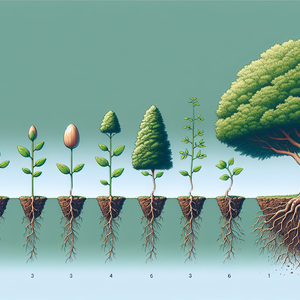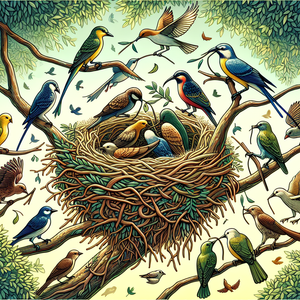From Hobby to Hustle: Turning Canva Skills into a Side Business

Launched in 2013, Canva has revolutionized the approach to design. The platform's intuitive interface and vast library of templates and design elements have empowered millions to create stunning visuals without needing advanced graphic design skills. This democratization of design has birthed a new wave of freelance designers who leverage Canva to meet diverse client needs, ranging from social media graphics to marketing materials. The ease of use combined with powerful design capabilities has made Canva a go-to tool for aspiring entrepreneurs looking to tap into their creative potential.
Success Stories: From Hobbyists to Entrepreneurs
Many individuals have successfully transitioned from casual Canva users to flourishing business owners. Take Sarah, for instance, a former elementary school teacher who began designing educational resources for parents during the pandemic. Using Canva, she created visually appealing worksheets and activities that quickly garnered attention on social media. Within months, Sarah opened an Etsy shop, now earning a steady income from her designs and helping parents and educators alike. Another inspiring example is Jake, a college student who offered his Canva design services to local businesses. He started by designing flyers and social media posts for a few coffee shops. As word spread about his talent, he expanded his services to include branding and event materials. Today, Jake manages a successful side business while balancing his studies, demonstrating the potential for young entrepreneurs to thrive in the digital economy.
Practical Steps to Start Your Side Business
1. Identify Your Niche: The first step in launching your Canva-based side business is to determine the type of design services you wish to offer. Consider your interests, skills, and the needs of your target audience. Whether it’s creating social media graphics, invitations, or marketing materials, specializing in a niche can help you stand out. 2. Build Your Portfolio: Utilize Canva to create a diverse portfolio that showcases your best work. Include a range of projects that reflect your style and expertise. Consider offering a few projects for friends, family, or local businesses at no cost to gain experience and gather testimonials that will bolster your credibility. 3. Set Up an Online Presence: Establish a professional website or create social media profiles to showcase your portfolio. Platforms like Instagram and Pinterest are particularly effective for visual content and can attract potential clients. Creating an engaging online presence is crucial for building your brand. 4. Market Your Services: Use social media advertising, local community groups, and networking events to promote your services. Invest time in crafting engaging content that highlights your design skills and resonates with your audience. 5. Leverage Canva’s Features: Familiarize yourself with Canva’s advanced features, such as brand kits and animations, to offer unique value to your clients. By providing specialized services, you can differentiate yourself in a competitive market.
Effective Marketing Strategies
To expand your reach and attract more clients, consider implementing the following marketing strategies: - Content Marketing: Start a blog or YouTube channel where you share design tips, tutorials, and case studies of your work. This not only showcases your expertise but also drives traffic to your services, positioning you as an authority in your niche. - Networking: Engage with online communities and local groups related to small business and entrepreneurship. Building relationships with potential clients and fellow freelancers can lead to valuable referrals and collaborations. - Collaborate with Influencers: Partner with social media influencers or local businesses to create promotional materials. Such collaborations can enhance your visibility and credibility, drawing more clients to your services.
Transforming your Canva skills into a profitable side business is entirely achievable with the right approach. By identifying your niche, building a strong portfolio, and employing effective marketing strategies, you can turn your passion for design into a sustainable source of income. As the digital economy continues to expand, there has never been a better time to embrace your creativity and embark on your entrepreneurial journey. Whether your goal is to supplement your income or transition to full-time entrepreneurship, Canva offers the tools and opportunities necessary to make your dreams a reality. With dedication and a clear plan, you too can turn your hobby into a hustle.
Freelance Graphic Designer
Freelance platforms like Upwork and Fiverr, local businesses, or agencies seeking temporary design support.
Core Responsibilities
Create visually appealing designs for various media, including social media graphics, brochures, and marketing materials.
Collaborate with clients to understand their design needs and provide creative solutions that align with their brand.
Required Skills
Proficiency in design tools like Canva, Adobe Creative Suite, and other graphic design software.
Strong communication and project management skills to handle multiple client projects efficiently.
Social Media Content Creator
Marketing agencies, small businesses, and digital media firms looking for creative content.
Core Responsibilities
Design engaging social media posts and graphics using Canva to enhance brand visibility and drive audience engagement.
Develop and implement content strategies that align with marketing goals and target audience preferences.
Required Skills
Experience with social media management and understanding of platform-specific design best practices.
Ability to analyze engagement metrics and adjust content strategies accordingly.
Brand Identity Consultant
Startups, small businesses, and marketing agencies seeking to establish or revamp their brand identity.
Core Responsibilities
Work with clients to develop a cohesive brand identity, including logos, color palettes, and typography, utilizing Canva for design execution.
Provide guidance on brand strategy, ensuring consistency across all visual touchpoints.
Required Skills
Strong understanding of branding principles and market differentiation.
Proficiency in design tools with an emphasis on creating brand kits and templates in Canva.
E-commerce Product Designer
Online retailers, e-commerce brands, and independent sellers on platforms like Etsy or Amazon.
Core Responsibilities
Create product images, promotional graphics, and marketing assets for e-commerce platforms using Canva.
Collaborate with product teams to ensure that visuals align with product descriptions and branding goals.
Required Skills
Familiarity with e-commerce platforms like Shopify or Etsy and understanding of effective product presentation.
Strong visual storytelling skills to highlight product features and benefits through design.
Educational Resource Designer
Educational institutions, tutoring services, and online platforms offering resources for teachers and students.
Core Responsibilities
Design educational materials such as worksheets, presentations, and infographics for teachers and students using Canva.
Collaborate with educators to ensure that materials meet specific educational standards and learning objectives.
Required Skills
Background in education or instructional design, with an understanding of pedagogical principles.
Creativity in designing engaging and accessible materials tailored for diverse learners.


